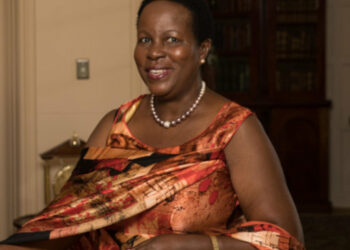A week ago, three Ugandan protestors—Norah Kobusingye, Praise Aloikin Opoloje, and Kemitoma Kyenzibo—took to the streets, naked, to protest corruption. As expected, they were arrested, but the real issue is not their arrest; it’s what they were protesting against—rampant corruption. Some critics have focused more on the fact that they were naked, accusing them of indecency or attention-seeking behavior. But these accusations miss the point entirely.
Critics say they exposed their bodies inappropriately, pointing out that such acts could distract from the cause. Some argue it’s a disrespect to the culture or an attention-grabbing stunt. But to reduce their protest to mere nudity is to ignore the message they are trying to send: the anger, frustration, and desperation young Ugandans feel in the face of unbridled corruption. These three individuals weren’t just protesting for themselves—they were out there for all Ugandans, especially the rural women who suffer the most from poor services. Their protest spoke for the women who have to walk long distances to get to a clinic because of the lack of health centers, the women whose children attend schools with no teachers, and the women whose communities are isolated due to bad roads.
These youthful protestors and many others chose to demonstrate a month after other anti-corruption protests in Kampala, which unfortunately didn’t lead to any significant change. The thieves still walk free, perhaps emboldened by the fact that public outcry has little effect on their activities. If protests clothed in anger didn’t work, then this naked protest was a bolder step, one meant to say: “We’ve tried everything; now we lay ourselves bare, quite literally, to show our pain.”
The act of going naked in public, especially for a protest, is not easy. In fact, it’s one of the most difficult things anyone can do. Even in private spaces, many people feel vulnerable being naked. Now, imagine doing that in the middle of Kampala, a city with millions of people, for a cause as serious as fighting corruption. The courage it takes to shed not just clothes but the layers of fear, judgment, and cultural expectations, is immense. These protestors weren’t just exposing their bodies—they were exposing the fact that Uganda’s leadership has failed them and countless others. They should not be mocked; they should be respected for their bravery.
The previous protests didn’t spark any change, so these nude protests represent a new level of desperation. They speak to the deep frustration that young people feel. This is not just an attention-grabbing stunt; it is a sign of just how bad things have gotten. The protestors did not go naked because they wanted fame. They did it because the systems that should protect and serve them have stripped away their dignity in other ways, every single day. These women wanted to highlight the lack of basic services that rural Ugandans suffer from—the absence of clean water, decent health facilities, reliable electricity, and infrastructure that connects them to the rest of the country.
I don’t know what will happen to these protestors now. They may face more arrests, longer detentions, or even worse treatment. But their resolve should not be broken. Their fight is a fight many of us share. While some in authority may want to dismiss them, saying that foreigners have promised them some kind of reward or sponsorship, that narrative is weak. Instead of talking about foreign influence, the government should take corruption seriously and handle it internally. Imagine if 1,000 women decided to protest naked. This is possible. If foreign governments are indeed capable of sponsoring a revolution, as some claim, then organizing 1,000 women to storm the streets would be easy.
The issue at hand is that corruption has reached dangerous levels, and it is tearing at the social fabric of Uganda. There comes a time when people get tired. They get tired of promises that aren’t fulfilled, tired of seeing corrupt officials arrested only to be released quietly, tired of hearing about grand anti-corruption measures that never take off. The time will come when citizens will rise, in larger numbers, and demand accountability. Our leaders should wake up and act before things get even worse.
The writer is the LC 5 Male Youth Councillor for Rubanda District
wilfredarinda@gmail.com
Do you have a story in your community or an opinion to share with us: Email us at editorial@watchdoguganda.com













